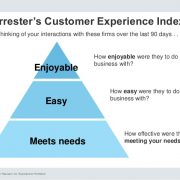3 tips for designing incentive programs in contact centers
Although it’s difficult to verify, many believe Martin Hill-Wilson‘s claim that “for every 10 percent increase in employee commitment levels, the company’s profits increase by 2 percent.”
Without a doubt, providing customer service – from answering general product questions to helping with complex technical problems – is a challenging job. Often ungrateful. In general, agents spend hours talking to people who do not want to be on the phone.
The emotions of customers can go from pleasant and kind, to distressed and aggressive nonstop. That’s why it is not surprising that the rotation rate in contact centers is 30-45% compared to 15.1% in the average of all industries.
Recognizing a connection between employee engagement and the bottom-line challenges of a company is just the easy part of the problem. The challenge is to figure out how to increase employee engagement. And, as we saw earlier, understand that this can be especially difficult when dealing with agents in a contact center.
The first step is to identify behaviors that help meeting the long-term goals of the company. And then incentivize employees to do those things. Here are some tips to help you get started:
1. Choose carefully your measurement criteria. This is the most important step in any incentive program. Successful contact center programs focus on things that improve the company’s performance and move away from things that undermine it. For example, focusing on the average call time, which is customary in the industry, can encourage employees to complete calls quickly, rather than making sure the customer’s needs are met. On the contrary, focusing on first call resolution discourages agents from asking for help when they need it. The key is to first decide what you want your people t o do, and only then, think about how to motivate them to do it.
o do, and only then, think about how to motivate them to do it.
2. You must be able to clearly explain the link between metrics and company goals. People tend to rebel against rules that seem to exist only for the sake of having a rule. And they have no tolerance for rules that dictate the opposite of what they are supposed to do. An important element in increasing people’s commitment is to be able to clearly explain why the things you are asking them to do are important. If you measure or encourage employees on hourly calls, you should be able to explain to them why this is important and how it affects the company’s goals. And, if you find yourself in the situation of having to stretch your arguments to find a relationship, you should ask yourself why. In other words, if you know the explanation is fragile, your agents will know it also. And the worst thing is that they will also think that you assume that they are not intelligent enough to understand it.
3. Finally, when giving your agents a goal, make sure they have the ability to achieve it. For example, it is not fair to encourage people to resolve the contact on the first call if they have obsolete technology that does not allow them to do so.








